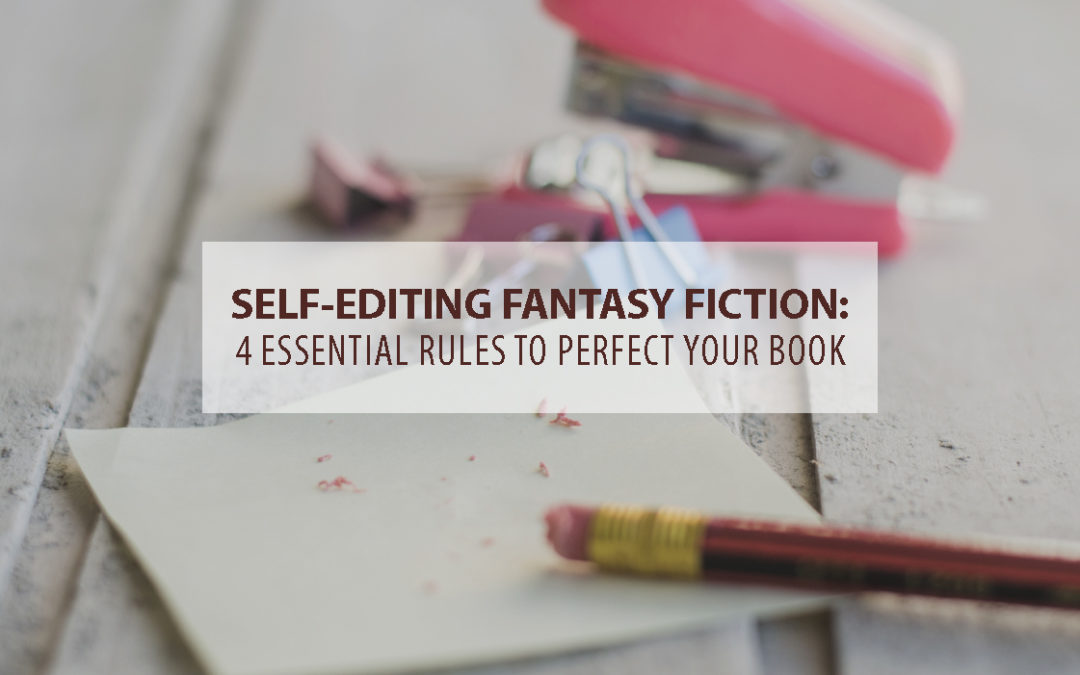Self-Editing Fantasy Fiction: 4 Essential Rules to Perfect Your Book
What is a more arduous task than writing? Editing! Editing is a stage in the writing process wherein an author or editor aims to enhance a draft by correcting grammatical or structural errors, clarifying words and sentences, and making the overall writing as precise and effective as possible. It involves adding, deleting, and rearranging words to declutter and streamline the entire literary piece.
Self-editing is common among book authors. When it comes to authoring books, authors usually make a lot of revisions in order to perfect their books. They go through several processes of self-editing to ensure that their final outputs are of the best quality.
In authoring fantasy fiction, particularly, editing is a crucial stage. Fantasy fiction is a complex genre that needs enormous attention, time, and effort. One cannot write an effective fantasy fiction overnight. Self-editing fantasy fiction is vital for authors of this genre.
If you are an aspiring fantasy author who wishes to learn the nitty gritty of self-editing fantasy fiction, then this article is for you! Here are four essential rules that you must know to perfect your fantasy fiction book:
Organization is key
In authoring fantasy fiction, the organization of the story is very important. Many authors (across various literary genres) are plagued with timeline issues at every level. These issues mostly stem from one major shortcoming: lack of organization. Readers find it difficult to follow through a book when its circumstances or events are scattered and thrown around in random parts of the story without buildup. Especially in a fantasy fiction story where a lot of things happen, organization is essential.
When you self-edit your fantasy fiction book, pay close attention to the timeline of your story. Make sure your timeline is organized in such a way that it becomes clear and solid. It should not leave the readers confused and uncertain about when something is happening. Unless you are deliberately manipulating the readers for other plotline reasons, avoid creating uncertainties about when circumstances or events take place in your book.
Consistency is crucial
Aside from timeline organization, consistency is another aspect that you should pay close attention to when self-editing a fantasy fiction book. Consistency is especially essential when considering the point of view (POV) of the story. When creating fantasy fiction (or books in general), do not use too many POVs. If your story is told in the first person point of view, do not suddenly shift into third. This can be confusing and displeasing for the readers. It can also make your story sound amateurish.
Inconsistency in perspectives is a common mistake among authors. Especially in doing the first few drafts, deciding whose point of view can best tell the message of a section or passage can be quite confounding. For this reason, self-editing is a must. Self-editing by limiting perspectives can be arduous and demanding of creativity, but it is highly recommended.
Brevity is important
Fantasy fiction is meant to be fun. However, if your book contains too many dialogues and scenes that are not that necessary, then you story may end up becoming dull and dragging. This is where the importance of brevity comes in. In authoring fantasy fiction, you need to determine what information is necessary to back up or spice up your story and what is not. Never write forced dialogues or scenes just to fill up a space.
When self-editing a fantasy fiction book, make a serious attempt to read through and examine the sections and passages of your book. In each section or passage, ask yourself whether or not the readers need to know what is there. In striving for brevity, the popular writing technique, “Show, don’t tell,” also applies.
Reading should be easy
The necessity for this actually comes in as early as the writing stage. Nonetheless, it is still worthy to point out that when self-editing, you must consider the overall readability of your book. Do not make it difficult for the readers to read your book. Remember, again, fantasy fiction is meant to be fun. It is meant to engross the readers from beginning to end.
Once you have already hooked some willing readers, do not lose them with technical complexity. Do not use an unfriendly format. Do not crowd texts with intricate words. Do not make the readers labor through every section or passage of your book. To put it simply, make reading easy for the readers. To improve the readability of your book, you need to read your manuscript over and over again, and edit those parts that you find unclear. Better, you can make someone read your manuscript and ask for their opinion.
In summary, self-editing fantasy fiction is almost the same as editing any other genres in literature. However, when it comes to fantasy fiction, keenness and particularity are important. Fantasy fiction is a complex genre that requires enormous creativity in order to be effective. If you wish to write a fantasy fiction book that would struck readers with awe, then you need to take into consideration its organization, consistency, brevity, and readability. Nonetheless, more than the technicalities, what you need in order to create a perfect fantasy fiction book is imagination.


Link exchange is nothing else however it is simply placing the other person’s web site link on your page at
suitable place and other person will also do same in support of you.